A man who exploited illegal migrants, housing them in overcrowded garages and underpaying them, has avoided jail after he crowd sourced $80,000 in reparation payments.
Jafar Kurisi had earlier pleaded guilty in the Tauranga District Court to exploiting four illegal migrant workers, underpaying them thousands of dollars in wages and charging them $100 rent a week and travel costs for some, to get to and from work.
One worker was housed in a garage with no heating or insulation, with 19 others for four months. Some of the 19 slept on the carpeted garage floor because there were not enough mattresses.
The worker was later rehoused in another garage - this one had holes in it - where five other employees were also staying.
At Kurisi’s sentencing today, Crown Prosecutor Sunny Teki-Clark said the 60-year-old had used his position within the local mosque, and Muslim community, to exploit the victims.
A victim impact statement from one of the exploited workers said he had trusted Kurisi because of their shared religion.
“I was taken advantage of ... he used our religion to convince me that what he was doing was to help me,” the worker said.
Another said Kurisi should “practice what he preaches so no one gets the same treatment I did.”
Teki-Clark said these statements should frame the way the judge viewed Kurisi’s offer of reparation, as Kurisi had now used that community to meet the reparation “target” set by the court.
“My understanding is the money itself has been essentially crowd sourced from members of Mr Kurisi’s community to help him pay back this amount.”
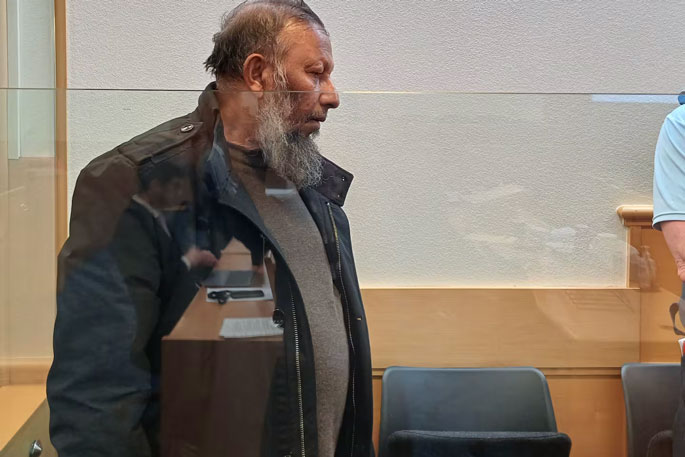 Jafar Kurisi has avoided imprisonment for exploiting migrants after he crowdfunded a reparation qualifying him for a discount that allowed his sentence to be one of home detention.
Jafar Kurisi has avoided imprisonment for exploiting migrants after he crowdfunded a reparation qualifying him for a discount that allowed his sentence to be one of home detention.
Judge David Cameron asked Teki-Clark if this was something that was “undesirable”.
Teki-Clark said it was not, but it was telling that Kurisi was leaning on members of his community to pay back money that he owed, rather than coming from his own pocket.
He said the offer of reparation didn’t indicate true remorse, which was reinforced by the fact no apology had been apparent in any of the pre-sentence reports before the court.
It had been a report writer’s opinion that Kurisi had simply been looking to “pay his way out of jail”, Teki-Clark said.
Kurisi’s lawyer, Michael Douglas, said the reparation funds were given by community members on the understanding Kurisi would repay them.
Douglas said Kurisi’s background ought to be taken into account, as he’d come from an impoverished setting where he’d lived in similar conditions as those he’d subjected the migrant workers to.
While Douglas said this wasn’t an excuse for the offending, it did offer some explanation for it.
But Teki-Clark said Kurisi came to New Zealand in 1996 and had been through a previous sentencing for offending of the same nature.
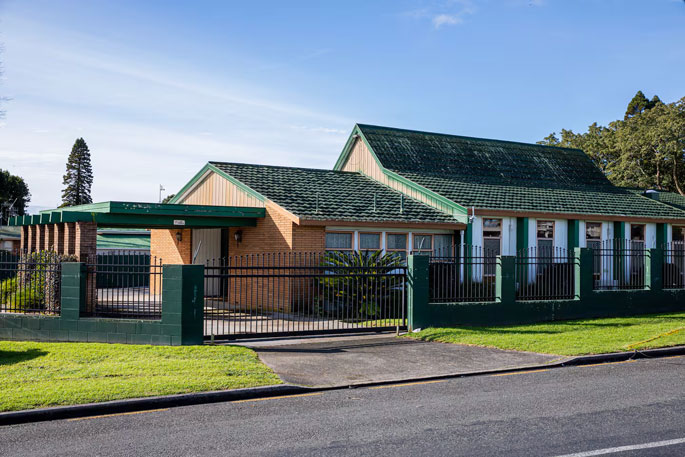 Victims of Jafar Kurisi's exploitation said he used his position with the Tauranga mosque, and as vice-president of the Tauranga Muslim Association, to gain their trust.
Victims of Jafar Kurisi's exploitation said he used his position with the Tauranga mosque, and as vice-president of the Tauranga Muslim Association, to gain their trust.
“Any causative contribution from his previous life before he arrived New Zealand ... was surely extinguished when he was sentenced by a very thin margin to a sentence of home detention last time. Added to that, it was only a matter of days, I believe, after that previous sentence expired that this set of offending start[ed].”
The judge said it was unfortunate that Kurisi hadn’t indicated any remorse or issued an apology, and still denied some of the facts.
“He denies for example having 19 people in his garage at one point in time,” the judge said.
Judge Cameron began with a starting point of three years, and uplifted it by three months for the attempt to pervert the course of justice.
A 25% discount for his reparation, along with 20% for his guilty plea and 10% for his health issues, meant the sentence got down to 17.55 months. The judge didn’t apply a discount for Kurisi’s background, agreeing with the Crown that the previous offending made that inappropriate.
The 17.55 months was uplifted by six months due to Kurisi’s relevant previous offending, to 23.5 months, and being under two years, the judge had the option of a home detention sentence.
The judge said from the outset of the case he had made it clear that a significant financial contribution to the victims, by way of reparation payments, would impact the ultimate outcome.
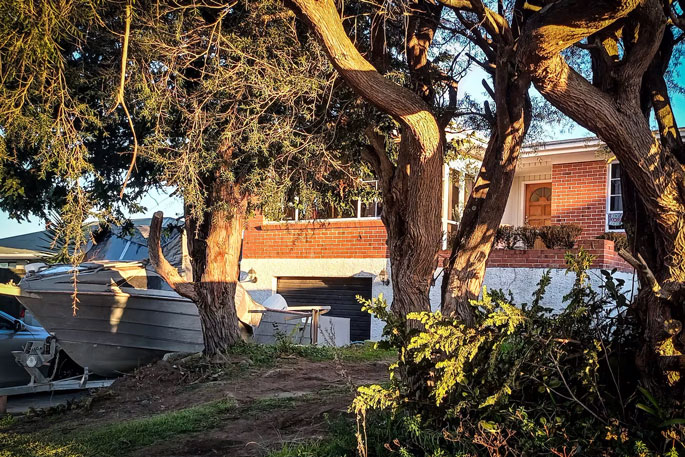 Workers were charged $100 rent a week to live in the garage.
Workers were charged $100 rent a week to live in the garage.
“Based on that, over the past few months the defendant has raised funds to the value of $80,000. At an earlier date it was made clear that should the defendant reach that target then no further reparation order beyond that would be made.”
Judge Cameron decided, “by a very narrow margin”, to commute the sentence to one of 12 months’ home detention.
What Kurisi admitted to
In February 2024, Kurisi pleaded guilty to seven charges of exploiting unlawful employees. The charges related to his failure to pay the minimum wage and, in three cases, also holiday pay, between December 1, 2018, and July 22, 2020.
He also pleaded guilty to a further charge of attempting to pervert the course of justice after he tried to get a prosecution witness to make a false statement to Immigration NZ.
He asked the witness not to tell authorities he had paid them cash, saying, “if you tell them you got cash from me, I will go to jail.”
The summary of facts states that Kurisi was involved in labour contracting in the kiwifruit industry for 15 years.
He would hire workers for picking, pruning and thinning, both for individual orchard owners and larger companies.
Orchard owners often pay a contractor who then pays their workers. The contractor must ensure that the workers are lawfully entitled to work in New Zealand and then ensure they pay the workers at least the minimum wage and other entitlements.
The employees in this case were from Indonesia and Malaysia.
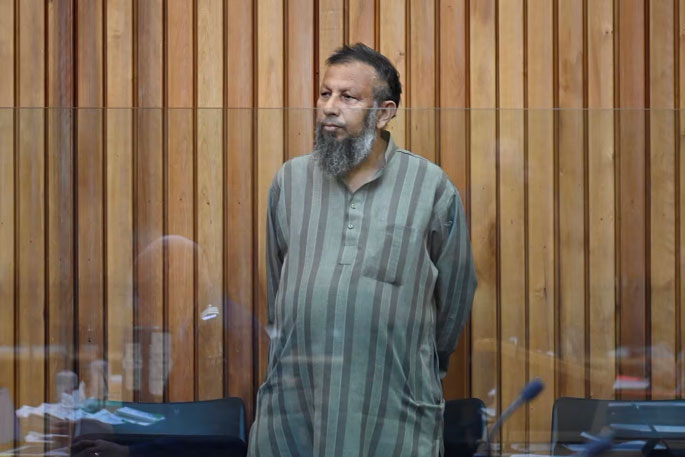 Jafar Kurisi had previously admitted to seven charges involving the exploitation of workers, as well as one of attempting to pervert the course of justice.
Jafar Kurisi had previously admitted to seven charges involving the exploitation of workers, as well as one of attempting to pervert the course of justice.
A visa agent had told them they would make good money in New Zealand and they borrowed money to pay for what they believed were work visas and travel costs.
The first victim borrowed the equivalent of $11,850 to pay for the visa and travel from the agent’s company to be repaid over three years, the summary said.
The victim was granted a three-month visitor’s visa on July 19, 2019, but because he did not speak or read English, he believed it was a work permit.
The worker lived with up to 19 people in a garage area under Kurisi’s house. They each had $100 rent a week deducted from their wages.
The garage was crowded, with no heating or insulation, and because there were not enough mattresses some workers slept on the carpeted floor, the summary said.
In January 2020, Kurisi moved this victim to a small house he owned in Merivale occupied by five others, and they slept in a cold garage with holes in it and continued to pay $100 a week rent taken from his wages.
The summary said that on average the victim worked 51 hours a week and was paid an estimated hourly gross rate of $5 an hour, despite being told his hourly rate would be $13 an hour. Immigration NZ estimates Kurisi underpaid this worker $24,338.54 gross in minimum wages.
Similarly, Kurisi’s other victims also paid a visa agent for visa and associated travel costs, believing the payment would qualify them for New Zealand work permits.
In total, Kurisi’s victims were unpaid $121,134.06 gross in minimum wages and three workers also received no holiday pay entitlements.
Kurisi’s earlier offending related to providing poor-quality accommodation and food and failing to pay minimum wages or holiday pay.
In that case, Kurisi’s offending was connected to a high-profile human trafficking case involving Faroz Ali who was the first person in New Zealand to be sentenced for human trafficking when he was jailed for nine-and-a-half years in December 2016 for 15 human trafficking charges involving Fijian nationals.

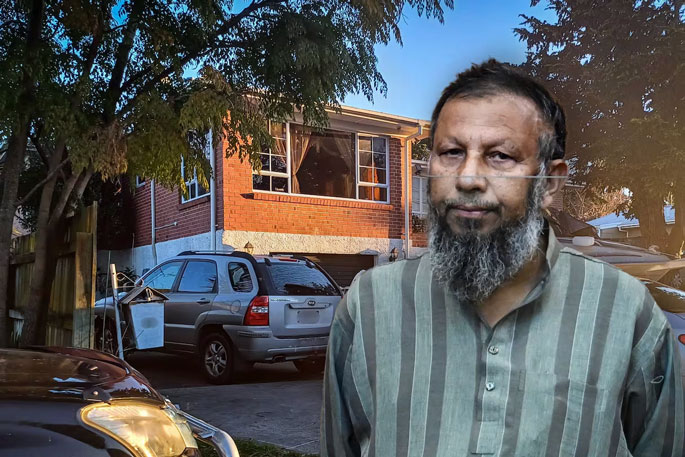



3 comments
Unfair
Posted on 09-07-2024 07:36 | By Womby
Basically he has ripped off the workers, ripped off his own Muslim community, got funds not in the way the justice system intended a discount to apply to avoid jail.
A very weak judge/justice system in this case particularly as it was a second offence for him and this style of offending.
Plus the cost of a court hearing.
Unbelievable
A Swindler, Cheater + Scammer
Posted on 09-07-2024 08:18 | By Yadick
This guy appears to be nothing more than a low-life swindler, cheater and scammer. To the people that gave to his court imposed reparation, unfortunately your highest expectation should be not to expect to get that money back.
What was the sentencing Judge thinking?
Look at his extensive, inhumane background.
His home detention should be garage detention just like he gave the others, no matress, no insulation, underpay him a non-working prisoners payment - which I think is .20c per day.
I hope these workers go on to build a stronger faith in New Zealand.
Exploitation
Posted on 09-07-2024 08:16 | By peter pan
He should be deported.
Leave a Comment
You must be logged in to make a comment.